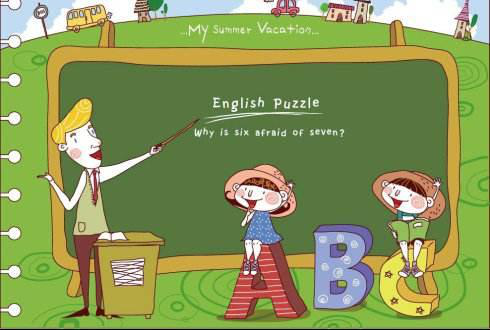人教版高一英语重点语法总结
人教版高一英语重点语法总结
同学们还在头疼到底应该记哪些语法嘛?今天跟小编来看看有哪些重点语法吧!
Unit1:
直接引语和间接引语(一)
直接引语:直接引述别人的原话。一般前后要加引号。
间接引语:用自己的话转述别人的话。间接引语在多数情况下可构成宾语从句且不要加引号。 例:Mr. Black said, “ I’m busy.” Mr. Black said that he was busy.
变化规则
1. 陈述句的变化规则
直接引语如果是陈述句,变为间接引语时,用连词that(可省略)引导,从句中的人称、时态、指示代词、时间状语、地点状语都要发生相应的变化。
(1)人称的变化——人称的变化主要是要理解句子的意思
例:1. He said, “ I like it very much.” → He said that he liked it very much.
2. He said to me, “I'v left my book in your room.” → He told me that he had left his book in my room.
例: “I don’t want to set down a series of facts in a diary,” said Anne. →Anne said that she didn’t want to set down a series of facts in a diary. The boy said, “I’m using a knife.” → The boy said that he was using a knife.
▲注意:如果直接引语是客观真理,变为间接引语时,时态不变,
如: He said, “Light travels much faster than sound.”
He said that light travels much faster than sound.
(2)指示代词、时间状语、地点状语和动词的变化

3. 疑问句的变化规则
如果直接引语是疑问句,变为间接引语时要把疑问句语序变为陈述句语序,句末用句号。 (1)一般疑问句:如果直接引语是一般疑问句,变为间接引语时,谓语动词是say或said时,要改为 ask 或asked,原问句变为由if/whether 引导的宾语从句。
例:“Do you think a diary can become your friend?” the writer says. → The writer asks us if we think a diary can become our friend.
(3)特殊疑问句:如果间接引语是特殊疑问句,变为间接引语时,仍用原来的引导词,但疑问句要变为陈述句。
例:“What do you want?” he asked me.
→ He asked me what I wanted
Unit2:
直接引语和间接引语(二)
3.祈使句的变化规则
如果直接引语是祈使句,变为间接引语时,要将祈使句的动词原形变为带to的不定式,并根据句子意思在不定式前加上tell/ask/order等动词,如果祈使句是否定句,在不定式前面还要加上not。
例:The hostess said to us, “Please sit down.”
→ The hostess asked us to sit down.
He said, “Don’t make so much noise, boys.”
→ He told the boys not to make so much noise.
Unit3:
现在进行时表将来
表示在近期按计划或安排要发生的动作。
① 瞬时动词的进行时在任何情况下都表示将来含义。
这些动词包括go , come , leave,arrive , return等。
I am leaving. 我将要离开了。
I am leaving tomorrow. 我将会明天离开。
② 持续动词的进行时,只有在有将来时间状语或将来语境的情况下才可以表示将来含义。 An American professor is giving a lecture this afternoon.
今天下午一位美国教授将要作报告。(将来含义)
An American professor is giving a lecture. 一个美国教授正在作报告。(进行含义)
Unit4:
定语从句
概念:在复合句中,修饰名词或代词的从句叫做定语从句。
成分:先行词,即被定语从句修饰的名词或代词;关系代词:that,which,who(宾格为whom,所有格为whose);或者关系副词where,when,why等。关系代词或关系副词处在先行词和定语从句之间,起着连接主从句的作用。
1. 关系代词that的用法
关系代词that在定语从句中既能指人,也能指物;既能做主语,也能做宾语。
例:1)A plane is a machine that can fly. (指物,作主语)
2)The noodles (that) I cooked were delicious. (指物,作宾语,可省略)
3)Who is the man that is reading a book over there? (指人,作主语)
4)The girl (that) we saw yesterday was Jim’s sister,(指人,作宾语,可省略)
2. 关系代词which的用法
3. 关系代词which在定语从句中只能指物,既可以做宾语也能作主语。
例:1)They planted some trees which didn’t need much water. (作主语)
2)The fish (which) we bought this morning were not fresh. (作宾语,可省略)
4. 关系代词who,whom的用法
关系代词who,whom 只能指人,在定语从句中分别作主语和宾语
例:1)The foreigner who helped us yesterday is from USA.(作主语)
3)The person to whom you just talked to is Mr. Li. (作宾语,可省略)
5. 关系代词whose的用法
关系代词whose为关系代词who的所有格形式,其先行词既可以是人也可以是物,whose和它所修饰的名词在定语从句中既可以做主语也可以做宾语。
例:1)This is the scientist whose name is known all over the world. (指人,作主语)
2) The room whose window faces south is mine. (指物,作主语)
3) He has written a book whose name I’ve forgotten. (指物,作宾语)
6. 关系副词when的用法 关系副词when在定语从句中作时间状语
例:1)I’ll never forget the time when (=during which) we worked on the farm.
2) Do you remember the afternoon when (=on which) we first met three years ago?
7. 关系副词where在定语从句中的用法
关系副词where在定语从句中做地点状语
例:1)This is the place where( =at/in which) we first met.
3) The hotel where (= in which ) we stayed wasn’t very clean.
8. 关系副词why在定语从句中的用法
关系副词why在定语从句中作原因状语
例: 1). I didn’t get a pay rise, but this wasn’t the reason why(= for which) I left.
2) . The reason why (=for which) he has late was that he missed the train.
看完小编的总结同学们有没有思路清晰一点呢?
- 频道推荐
- |
- 全站推荐
- 推荐下载
- 网站推荐


















